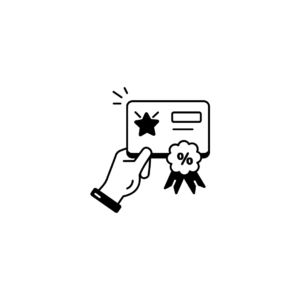Description
A Bachelor of Social Work (BSW) is an undergraduate degree that prepares students for a professional career in social work. This program focuses on social welfare, human behavior, and the skills needed to help individuals, families, and communities improve their well-being and address social issues.
Program Overview
Duration: Typically lasts 4 years, though some institutions may offer accelerated options.
Mode: Offered in full-time, part-time, and sometimes online formats.
Eligibility: Usually requires a high school diploma or equivalent, with relevant experience in social settings being an advantage.
Core Subjects
A BSW curriculum includes both theoretical coursework and practical training. Key areas of study typically cover:
Introduction to Social Work: Overview of the profession, its values, ethics, and the role of social workers in various settings.
Human Behavior and the Social Environment: Examination of psychological, social, and environmental factors that influence individual and group behavior.
Social Welfare Policy: Study of the history, development, and impact of social policies, including welfare programs and their implications for social justice.
Research Methods in Social Work: Instruction in qualitative and quantitative research methods, including how to evaluate social programs and outcomes.
Case Management: Techniques for assessing client needs, developing intervention plans, and connecting clients with community resources.
Group Work in Social Work: Skills for facilitating group dynamics, counseling, and support groups to promote social interaction and support.
Cultural Competence: Understanding diversity and developing skills to work effectively with individuals from various cultural backgrounds.
Field Practicum: A critical component involving hands-on experience in a social work setting, enabling students to apply their learning and gain practical skills under supervision.
Skills Developed
Empathy and Active Listening: Ability to understand clients’ feelings and perspectives, providing compassionate support.
Counseling Skills: Techniques for engaging with clients and assisting them in identifying solutions and coping strategies.
Critical Thinking and Problem-Solving: Skills to assess complex situations, analyze problems, and devise effective interventions.
Communication Skills: Proficiency in articulating ideas clearly and effectively, both in writing and verbally, essential for client interactions and advocacy.
Career Opportunities
Graduates with a BSW can pursue various career paths in fields such as:
Social Worker: Working in areas such as child welfare, mental health, school social work, or community services.
Case Manager: Coordinating services for clients in healthcare, social services, or rehabilitation settings.
Mental Health Counselor: Providing counseling and support to individuals facing mental health challenges.
School Social Worker: Supporting students’ emotional and social needs within educational settings.
Substance Abuse Counselor: Assisting individuals in overcoming addiction and connecting them to rehabilitation resources.
Community Organizer: Working to mobilize community resources and advocate for social change on behalf of marginalized groups.
Benefits of Pursuing a BSW
Professional Preparation: Equips students with the knowledge and skills needed for a successful career in social work and related fields.
Focus on Social Justice: Provides a strong foundation in advocating for social justice and addressing systemic issues affecting vulnerable populations.
Field Experience: Hands-on practicums provide real-world experience, essential for building professional competence and networks.
Additional Considerations
When considering a BSW:
Licensure: Many regions require social workers to obtain licensure after completing their degree, which may involve passing an exam and completing continuing education.
Specializations: Explore opportunities to specialize in areas such as child welfare, mental health, or gerontology, as many programs offer elective courses or concentrations.
If you have any specific questions about the program, its components, or potential career opportunities in social work, feel free to ask!









